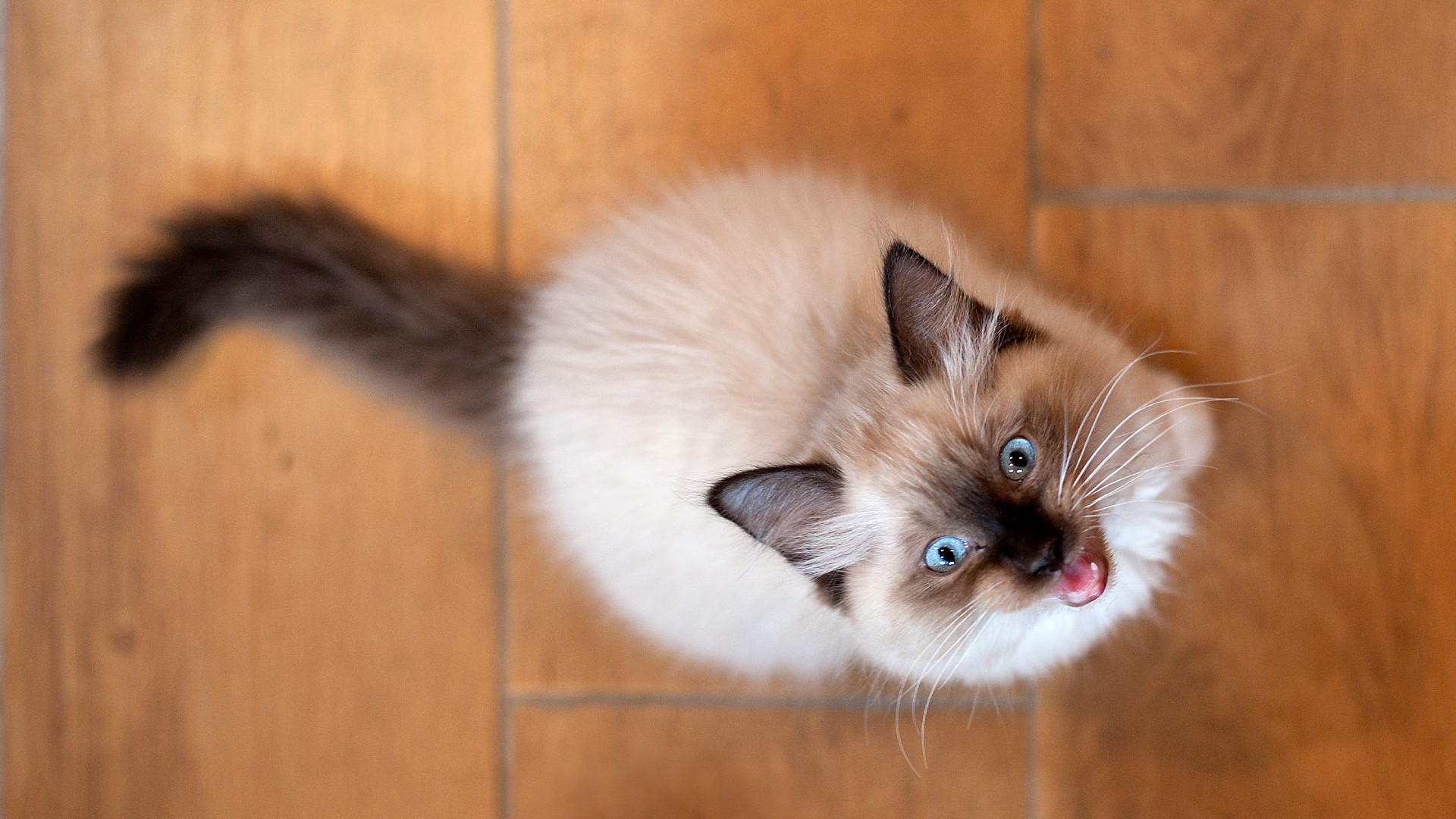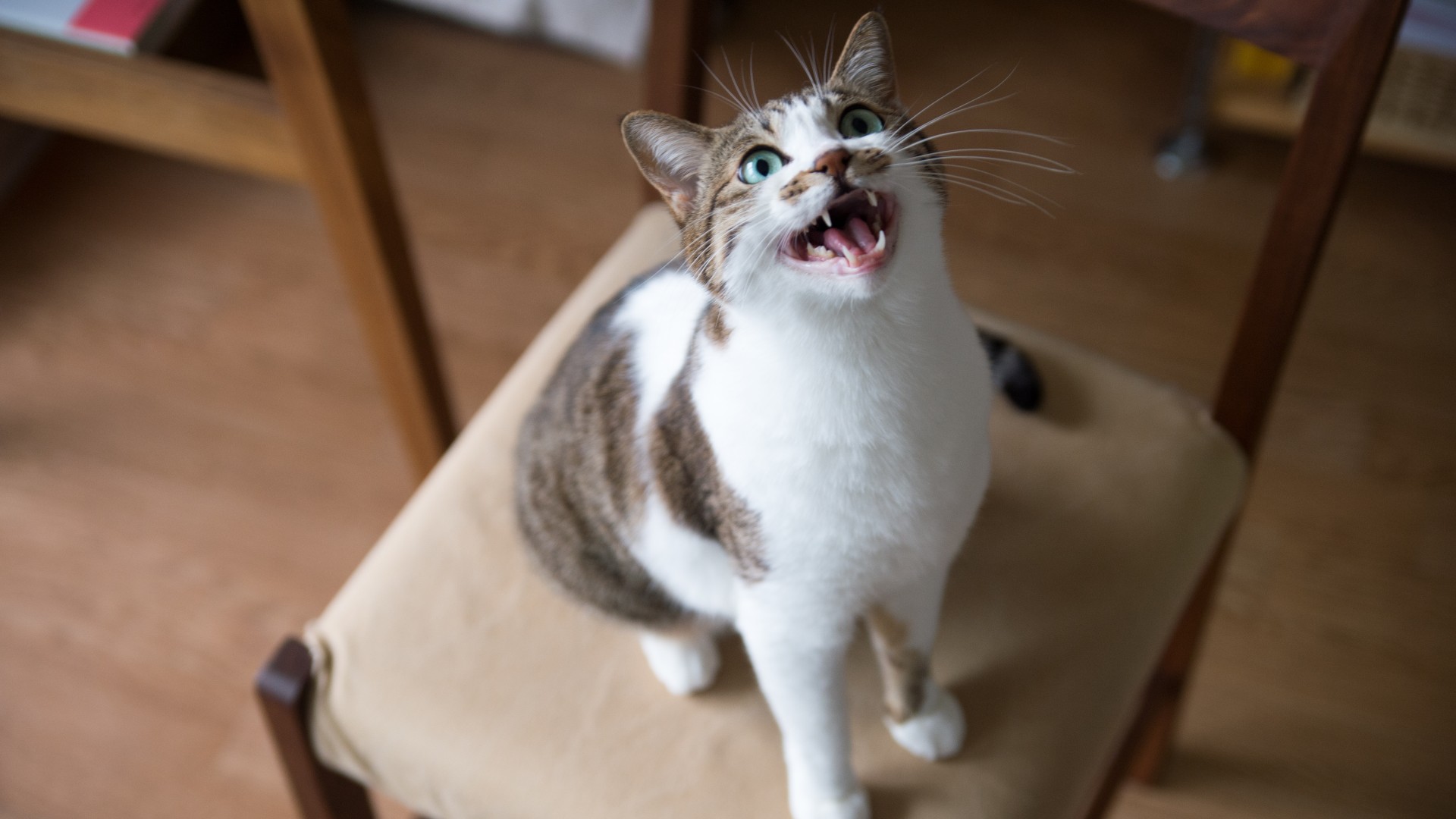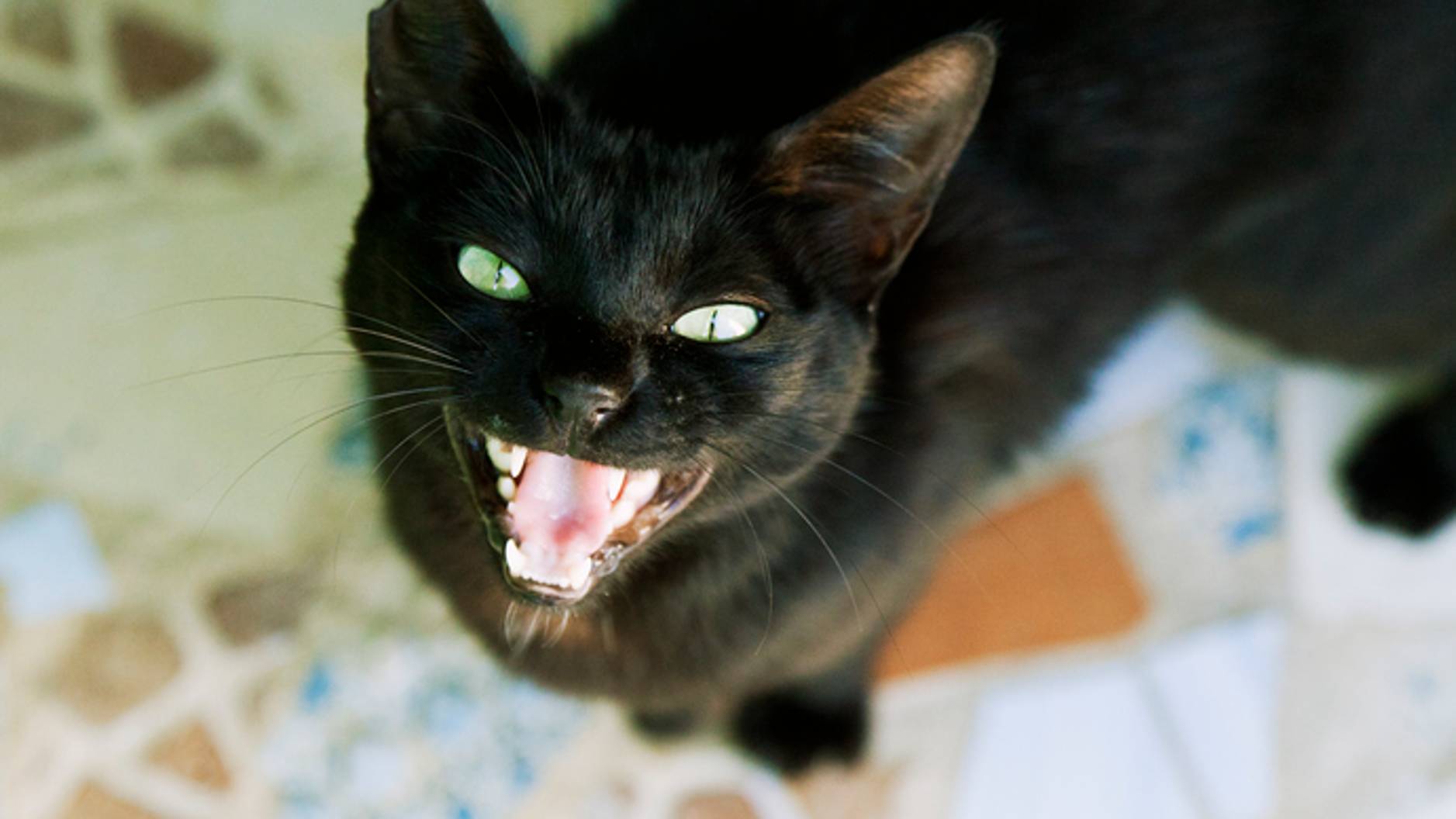Cat meowing at night? Find out why, and what you can do about it...
A cat meowing at night can mean many things, so we'll help you get to the bottom of it

Get the best advice, tips and top tech for your beloved Pets
You are now subscribed
Your newsletter sign-up was successful
A cat meowing at night can mean a few things. Late-night cat vocalization can be hard for owners who are trying to sleep - especially if they have to get up early in the morning. But a cat meowing at night is something you shouldn't ignore - at the very least, it's something you should explore. Cats are crepuscular, which means they save certain activities (like hunting and mating) for dawn and dusk. This could be why you hear excessive noise at dusk - especially if you have any creepy-crawlies in your house.
But a cat being crepuscular isn't the only reason why they may be meowing at night. Perhaps your cat won't sleep and is keeping you awake as well with their incessant yowling. If that's the case, this is likely a behavioral issue, but you'll need to get to the bottom of why it's happening in the first place. We'll give you all the details as to why your cat is meowing at night and what you can do to ensure you both get a good night's sleep.
Why does my cat meow at night?
Cats being more active in the twilight hours of the day aren't the only reason why your cat might be meowing at night. Here are a few other reasons why your cat me vocalizing at inopportune moments:
- Your cat is trying to hunt
- Your cat is bored or unstimulated during the day
- Your cat is seeking attention
- An outdoor cat is trapped inside and wants to go out
- Your cat is trying to mate
- Your cat has a medical issue, such as an overactive thyroid issue or kidney disease (this is usually more of a problem for older cats)
The reasons for a cat meowing at night are often fairly unproblematic, so don't panic if you start hearing your kitty vocalizing after you've gone to bed. However, it's important to be aware of any changes in your cat's behavior, as it can be a sign of something else going on. And if this is something your cat has always done, you may want to chat with your vet anyway or try to provide more enrichment for your feline friend during the day.
If your cat’s excessive meowing seems to be because your cat is having trouble sleeping, try reading our three reasons why your cat can’t sleep piece for some helpful tips and advice for getting them to nod off in a timely fashion.
When your cat is asleep, it can also be helpful to monitor your cat’s sleeping positions. Observing how they catch some rest can reveal lots about your cat’s state of mind, and whether or not they’re feeling anxious.

How to stop a cat meowing all night
As much as we all love our cats, sometimes they can really test our patience with their behavior - especially if that starts to affect our own sleeping patterns. If your cat has taken up to rousing the neighborhood with its “night calling”, then you’ll probably want to stop it as soon as you can - for your own sake as well as theirs.
Get the best advice, tips and top tech for your beloved Pets
Luckily, there are some things you can do to try and help the problem and eliminate the meowing, depending on what is the likely cause of it in the first place.
If your cat is more active at night
It’s better if your cat follows roughly the same sleep pattern as you, and our piece on the reasons why your cat can’t sleep will give you some excellent tips for ensuring that happens.
However, you will also likely find that night-time meowing eases off as the cat gets older and settles into a routine more easily, as well as losing some of their strong mating or hunting instincts.
You might also want to invest in the best cat bed to make sure that your cat is cosy and warm and feels safe at home.
If your cat is bored
It’s important to both physically and mentally stimulate your cat, and that’s especially true if you have an indoor cat which doesn’t get its stimulation from going outside.
If they’ve spent the day bored, then it can manifest as meowing at night as they won’t be tired out and seeking attention.
It’s best if you can provide the stimulation during the day at a time which suits you, rather than responding to them when they start meowing, otherwise they will simply learn to adopt this behavior. Provide plenty of toys for them in your house, and try to dedicate at least 20-30 minutes of playtime for them if they are indoor cats, too.
Cats which are primarily indoor cats may also benefit from some time in a garden or enclosed space, so also think about introducing that to your cat’s routine. If you can’t provide any outdoor space, give them a good amount of space indoors, and consider installing special areas that they can climb around and explore.

If your cat feels trapped
An indoor/outdoor cat may feel inclined to meow at night if they feel trapped, especially if you don't let them out during the later hours. If you’ve taken to keeping your cat indoors overnight, but letting them play outside all day, then this can understandably lead to periods of frustration for the cat, especially if they were previously used to having free roam of the streets whenever they want.
Perhaps you’ve stopped letting them out at night because you don’t want the hassle of letting them back in during the early hours of the morning, or because you're worried about their safety at night. If you want to keep them as an indoor/outdoor cat, you may want to consider investing in the best microchip cat flaps - you can set entry/exit hours, and you can ensure only your moggy makes it indoors as the flap will recognize only your furkid’s chip. Or, talk to your vet about transitioning your cat to permanent indoor status to ensure their safety - unjust keep in mind you'll need to make sure there's a lot of enrichment available to them.
If your cat wants to mate
Yowling at night could be a cat call to fellow moggies. It’s worth at the very least considering getting your cat neutered, especially if you are going to let them roam outside unattended. You might find that it doesn’t take very long after neutering for the meowing to stop.
If your cat has a medical problem
If all of the above issues have been ruled out or seem to be unlikely, it’s worth taking your cat along to the vet for a quick check-up, as unexpected and frequent meowing at night could be a sign that all is not well.
Older cats can suffer from problems such as an overactive thyroid or kidney disease which is causing them to meow excessively during normal sleeping hours.
Always make sure your cat has access to a litter tray at night - don’t lock it away from them in a different room when you go to bed - as it could be as simple as they want to go to the toilet but are unable to.
Read next: Why do cats play at night?
Amy Davies is a freelance writer and photographer with over 15 years experience. She has a degree in journalism from Cardiff University and has written about a huge variety of topics over the years. These days she mostly specialises in technology and pets, writing across a number of different titles including TechRadar, Stuff, Expert Reviews, T3, Digital Camera World, and of course PetsRadar. She lives in Cardiff with her dog, Lola, a rescue miniature dachshund.

